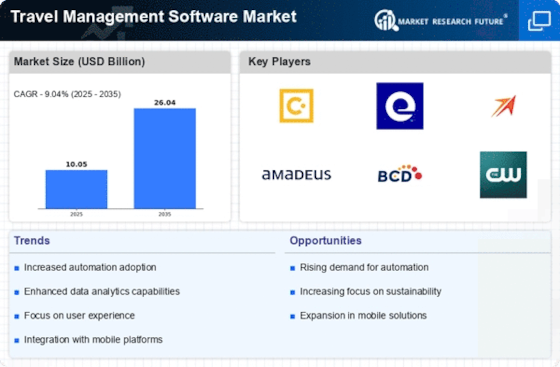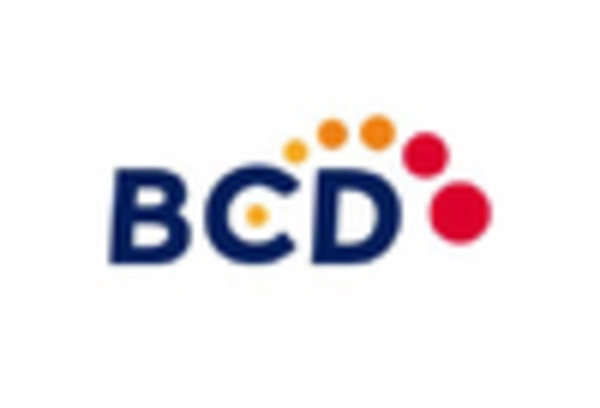Market Trends
Key Emerging Trends in the Travel Management Software Market
The Travel Management Software market is experiencing dynamic trends that reflect the evolving landscape of the travel industry. As businesses and organizations increasingly recognize the importance of efficient travel management, the demand for advanced software solutions has witnessed a significant upswing. One notable trend is the growing adoption of cloud-based travel management software. Organizations are moving away from traditional on-premise solutions in favor of cloud-based platforms, which offer greater flexibility, scalability, and accessibility. This shift allows businesses to streamline their travel processes, enhance collaboration, and access real-time data from anywhere worldwide. Another noteworthy trend is the integration of Artificial Intelligence (AI) and Machine Learning (ML) into travel management software. These technologies empower the software to analyze vast amounts of data, identify patterns, and provide valuable insights.
AI and ML capabilities enhance decision-making processes, enabling businesses to optimize travel itineraries, expenses, and overall efficiency. This trend aligns with the industry's pursuit of smarter, data-driven solutions to navigate the complexities of modern travel management. Mobile accessibility is emerging as a crucial aspect of travel management software trends. With the increasing reliance on smartphones and tablets, users expect seamless access to travel-related information on the go. Travel management software developers are focusing on creating mobile-friendly interfaces and applications that allow users to manage bookings, expenses, and itineraries from their mobile devices. This trend caters to the needs of a workforce that is becoming more mobile and emphasizes the importance of user-friendly, accessible solutions.
The emphasis on sustainability is influencing market trends in travel management software. As businesses strive to align with environmental goals and reduce their carbon footprint, a growing demand for software that facilitates eco-friendly travel practices is growing. Travel management solutions are incorporating features that help organizations track and manage their environmental impact, such as carbon emissions from travel activities. This trend reflects a broader industry shift toward sustainable and responsible business practices. The rise of integrated platforms is reshaping the landscape of travel management software. Organizations are seeking comprehensive solutions that handle travel bookings and expenses and integrate seamlessly with other aspects of business operations. Integrated platforms enable a more holistic approach to corporate travel, allowing for better coordination between travel management, finance, and human resources. This trend signifies a move towards more unified and efficient solutions catering to modern businesses' diverse needs. Cybersecurity is becoming a paramount concern in the travel management software market. As these software solutions handle sensitive information such as travel itineraries, personal details, and financial data, ensuring robust cybersecurity measures is crucial. The increasing frequency and sophistication of cyber threats have prompted organizations to prioritize security features in their choice of travel management software. This trend underscores the importance of data protection and privacy in an era where digital security is a top priority for businesses.



















Leave a Comment